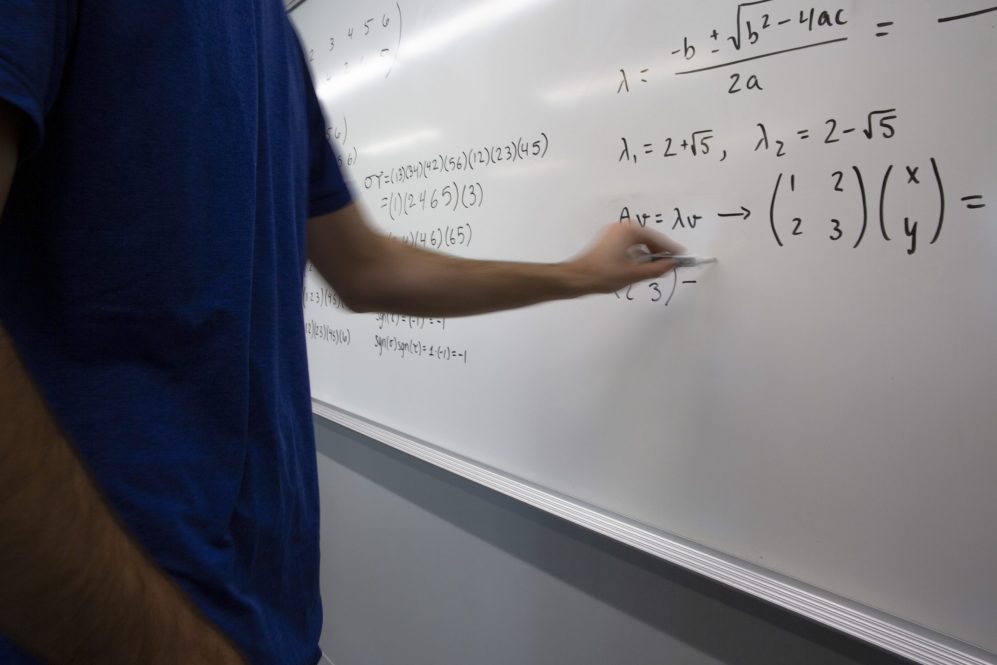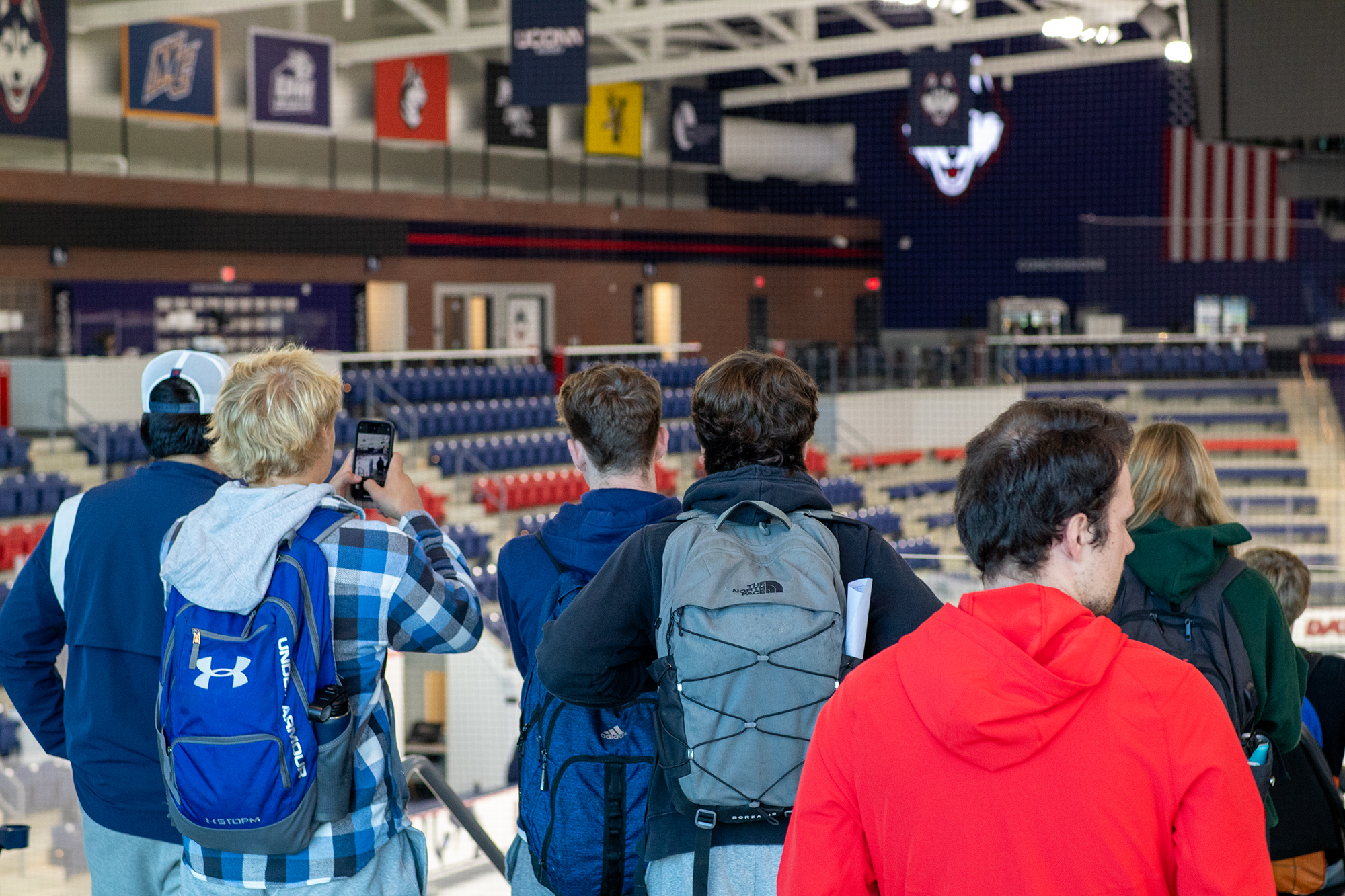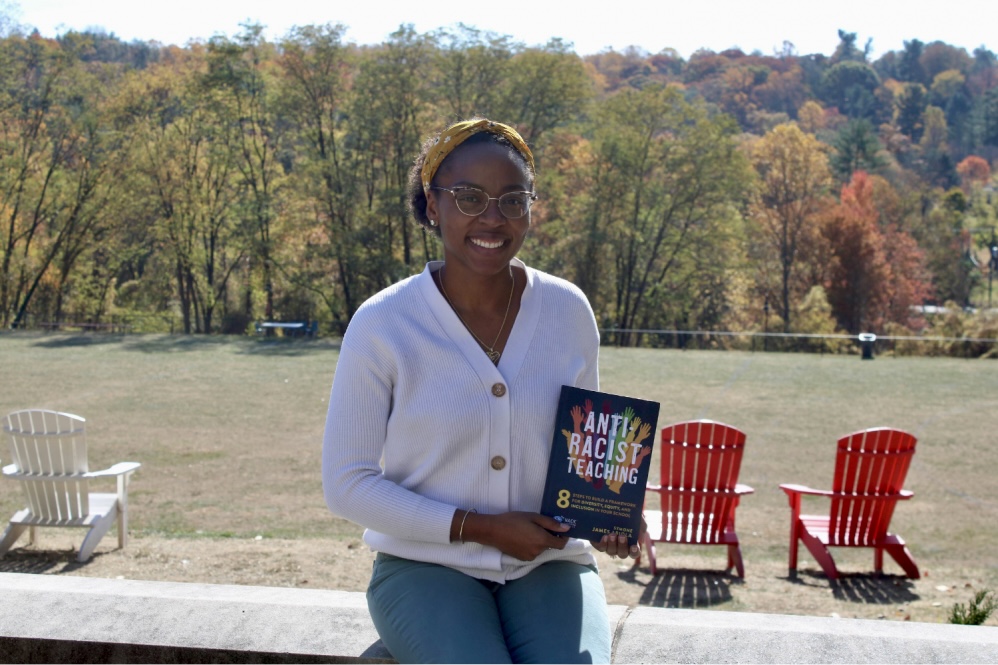The department of mathematics, in the College of Liberal Arts & Sciences, has received three-year funding for up to five Ph.D. fellows annually through the federal GAANN (Graduate Assistance in Areas of National Need) program.
This marks the department’s first receipt of external funds to support doctoral students and is an affirmation of its research strength. It will also help the program expand and diversify its applicant pool as well as its admitted applicants.
“It’s a great initiative, and it’s going to be extremely beneficial for our department,” says Vasileios Chousionis, director of graduate studies for the department. “It’s almost transformative. It really solidifies our position as a top research institution – which is the best verification you could hope for.”
As a nationally recognized honor, the program will also allow the department to attract more applicants and welcome more students with financial need. Departmental leaders expect the department to grow even stronger thanks to this new funding, which will cover stipends, tuition, and fees for five qualifying fellows of exceptional talent and demonstrated financial need. In return, the University will match a portion of this award.
This infusion of funding is dedicated to nurturing students’ academic and professional development in a highly relevant subject of national need. Xiaodong Yan, associate department head, anticipates that it will have a snowball effect on research development and student success, trickling down to undergraduate support as well.
“We can admit more students than we usually do,” Yan says. “In the long run, that will also help to strengthen our graduate program itself, because our faculty would be able to run more graduate courses that, in return, will help train our graduate students better and prepare them better for the job market.”
Department head Ambar Sengupta attributes the receipt of this grant to the hard work of the entire department, including support staff, and “the excellence of our faculty research.”
“Our research output has been increasing steadily over the past few three-year cycles of evaluation,” Sengupta says, pointing to the mathematics graduate program’s climb in national rankings. He also praises the quality of classroom teaching in the department, especially acknowledging the department’s talented faculty in residence and lecturers.
“Our faculty have a culture of teaching excellence that is just absolutely remarkable. I’ve never seen it anywhere else,” says Sengupta, who taught at two different universities before joining the UConn faculty in 2016.
Chousionis echoes Sengupta’s sentiments. As the director of graduate studies, he oversees admissions decisions and will be responsible for awarding the new fellowships to students. He knows firsthand the quality of applicants to the program, as well as the quality of education they receive.
“Our graduate students tend to get very good jobs, either in research-oriented positions like postdocs or teaching positions, or in industry,” says Chousionis. “We tend to produce high-quality Ph.D.s, and this is reflected in the applications – last year, we received more than 200 applications for 12 positions.”
In addition to Sengupta, Chousionis, and Yan, associate professor in residence David McArdle was a key faculty member in securing this grant. McArdle will be overseeing the training of graduate students for teaching purposes, according to Sengupta.
The department’s office staff team also made this effort possible, especially Monique Roy, the graduate program coordinator.
The College of Liberal Arts & Sciences (CLAS) had a 100% success rate in GAANN grant applications this year – the department of chemistry also received this award.


